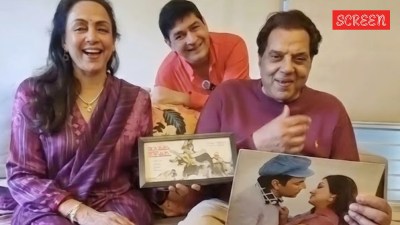Piracy Equals Drunken Driving
Why the music business might be looking up
At this years SXSW an annual conference on music,film in Austin,US panel discussions,two heroes from the world of publishing and 140 character wisdoms said completely contradictory statements about the dilemma of peddling content. David Carr,New York Times culture columnist,said to a packed hall,Dont give your saway for free. The previous day,critically acclaimed graphic novelist Neil Gaiman,admitted that sales of his books in Russia increased the more they were pirated there. For creators of content whether its graphic novels or music this is an ongoing debate. Either way,according to reports,the music industry is finally looking up. Piracy is going down and listeners are beginning to buy music or at least pay for streaming services. According to a report by Time magazine,music revenues in 2012 have increased for the first time since 1999. A senior executive from a major international record label in India told me his company was now paying for his occasional beer. The smile had returned to his face.
Back home,last month,Flipkart celebrated the first anniversary of Flyte,their digital music downloading service,by offering 100 albums across genres for free downloads. The campaign was a success and listeners shared the wonderful news on social media urging everyone to be part of the free-for-all. These were users who would usually download free music over torrents,anyway,so it was a bit amusing to watch the fervour. But with this move,Flipkart made a clear distinction about guilt-free downloads,paid or otherwise. It was an affirmation that downloading music or movies off torrents has now become a sort of uncool behaviour8230;much like drunken driving. This is a huge development in the music industry and might just allow record labels to breathe easy. With this campaign,Flipkart is hoping to get 1.5-2 million customers over the next year through customers who are now warming up to the idea of a legal way to acquire digital music.
Carrying on this psychological warfare is the newly launched Copyright Alert System in the US. With this,content creators can monitor torrent sites and alert the Internet Service Providers if they see people downloading their content illegally. The service providers in turn will alert the user by showing them educational videos about the evils of piracy hoping to give them a sense of guilt. Repeat offenders will have their bandwidth reduced. Enforcers vow that this will change the way people perceive the act of downloading from torrents since this time it involves no harsh punishment,only admonishment. The idea here is that people behave themselves when they know someone is looking. Apparently,you would steal from a shop if you knew no one was looking! Imagine getting an alert from MTNL for downloading music and then being forced to watch an educational video! This sort of psychological and traumatic strategy seems to be the only option record labels have. That,and good streaming sites which allow users to listen to any music anywhere in the world through an affordable monthly subscription.
Streaming sites like Pandora and Spotify are successful pay-to-listen models and are yet to be launched in India. Indian startups like Musicfellas and RadioFlote that are emulating the model of stream-and-buy are yet to build an impressive catalogue. This means that most of us in India still have to rely on whatever platforms are available legal or illegal to discover and listen to new music. The downside of these streaming sites is that royalty rates for the creators are almost negligible given the cheap subscription rates.
So what does all this mean for the artist,finally? Is there money to be made by selling digitally or through streaming sites? Does the artist give out their music for free or not? I dont know about the others but I can tell you that my band hasnt gone on a holiday or even bought a single piece of worthwhile equipment from the money made from music sales over the past three years. The money is still in the gigs. My piece of advice to upcoming musicians do what works for you. Just dont stop making music.
- 01
- 02
- 03
- 04
- 05































